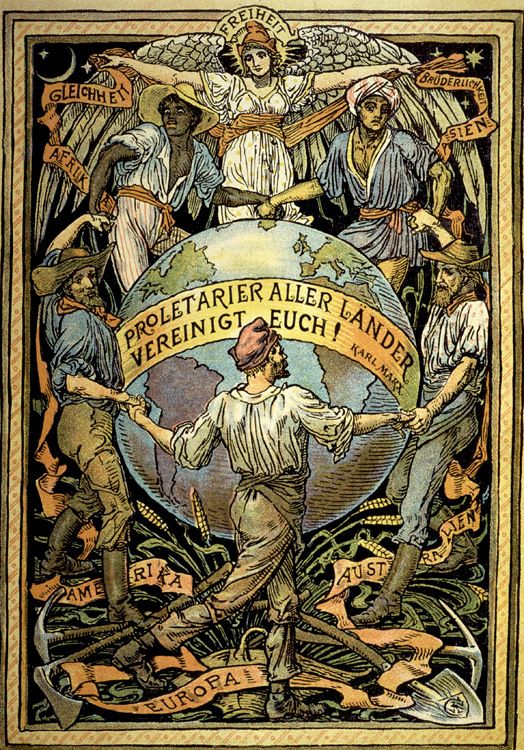Marxists have followed to the letter Marx’s understanding of religion as the opium of the people. Marx also said the figure of God was an expression of the alienated creativity of humanity. He also saw the religious promise of heaven in the afterlife as a way to keep workers from rebelling in this life and creating heaven on earth. We agree with all of this. However, Marx was too sweeping when he condemned all religion is alienating. The religion he was referring to was monotheism. We think his criticism applies far less to polytheism and not at all to animism. Marx was dead right about monotheistic religion because monotheism first arose in class societies. However, he was wrong about animism and to a lesser extent polytheism. Why? Marx labelled the first societies (hunter-gatherers) as being primitive communism. They had no private property and shared the products and processes of their work. There was no institutionalized leadership and no exploitation. All anthropologists agree that all societies have religion. Therefore, primitive communists had a religion. Yet this religion, what Francis Cornford called “primitive magic”, had none of the characteristics Marx named as religious. We think that the characteristics of primitive and secondary magic can be incorporated into Marxism as part of a materialist sacred practice. In Marx and Engels general sweep of history, under advanced communism, some of characteristics of primitive communism would return in a higher form, in a qualitative leap to a communism based on abundance. So too, the primitive magic of hunter gatherers can return on a higher level with the emergence of Neopaganism as part of a communist society.
Marxists are typically atheists but they sensibly understand that workers are not going to give up their Judeo-Christian religion when their life is relatively miserable. However, Marxists have treated religion as a private matter of the workers and have not been active in understanding how religion has captured the minds and hearts of workers. As atheists and secularists, Marxism has stayed away from the techniques religion has used to appeal to workers such as sacraments, holy days, patron saints, mythological stories and ritual. With the exception of liberation theology, they have treated religion as superstitious nonsense crafted by priests and want no more to do with it. In addition, Marxism has also failed to understand how nationalism and sports, two more of its ideological rivals, have been built using the same techniques as monotheism. Marxism has failed to understand the positive moments of sacred life and find a way to incorporate them into socialism. Enter Neopaganism.
Marxism does not have to reinvent any sacred ontology, epistemology and methodology from scratch because Neopagans already have one in place. According to Margot Adler in Drawing Down the Moon, as part of the German romantic movement Neopaganism emerged and carried on as a small movement up until the 1940s. Then thanks to Gerald Gardner and Doreen Valente, witchcraft came into its own first in England and then in the early 1970s in the United States. Since then, Neopaganism has blossomed, with Adler suggesting that in the United States alone there are 200,000 people that identify as Neopagans. What does Neopaganism have to do with Marxism? In my book the Magickal Enchantment of Materialism: Why Marxists Need Neopaganism I identify eight characteristics that might make Neopaganism appeal to Marxists:
- A western source of influence which might make it a natural candidate to replacing Christianity
- The similarities between pantheism and dialectical materialism
- The positive attitude toward matter as being active, self-regulating and self-generating as similar to Marx’s materialism
- The importance of the past—pagan repression by Christianity like Marxist appreciation of primitive communism
- Importance and appreciation of science and futurism
- Recognition of the dark side of nature and humanity—
- Pro-feminism with Neopagans having equal representation as men
- Passing knowledge on across generations without economic exchange
Lastly what Neopagan have to offer Marxism that we think is most important is the appreciation of ritual, wheel of the year celebrations, special days of the year and mythologies In other words Neopaganism can deliver the very things that religion, nationalism and sports delivers to the Yankee population in a way that is not superstitious, does not reify its gods and goddesses, and is not escapist. There are at least 10 articles in the Perspective and Analysis section of our page which you can read which later was incorporated into my book.

